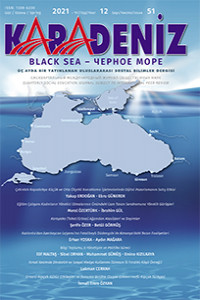SEVERAL ASPECTS OF THE PROBLEMS OF CIVIL INTERGRATION ACCORDING TO THE GEORGIAN-ARMENIAN LINGUISTIC CONTACTS, ON THE EXAMPLE OF JAVAKHETI
SEVERAL ASPECTS OF THE PROBLEMS OF CIVIL INTERGRATION ACCORDING TO THE GEORGIAN-ARMENIAN LINGUISTIC CONTACTS, ON THE EXAMPLE OF JAVAKHETI
Author(s): Janna KhachaturianSubject(s): Social Sciences, Cultural history, Applied Linguistics, Political history, Sociolinguistics, Sociology of Culture, Identity of Collectives, Turkic languages
Published by: Kültür Ajans Tanıtım ve Organizasyon
Keywords: Javakheti Armenian; family language; state language; civil integration; Georgian-Armenian linguistic contacts;linguistically isolated centers
Summary/Abstract: There are people of other ethnic origins besides Georgians among the citizens of Georgian state, whose way of life, daily needs and cultural aspirations are formed and developed in this country. However, in many cases, due to confessional, ethnocultural and linguistic differences, signs of certain types of marginalization may appear. Thus, in order to ensure the unity of the population, it is necessary to overcome all the obstacles that hinder the rapprochement of citizens. One of the most important barriers on this path is the issue of language competence. Universal knowledge of the state language is an indispensable condition for success. As it is known, the sovereignty of a country depends on the strength of the state language, care for the language, its protection and popularization is a prerequisite for the strength of the state. Therefore, the language problem in the country clearly indicates a lack of civic integration. The only guarantee of civic unity is language, at least people should understand each other, to put it simply, they should speak on "one language". Today, the main priority of the state is to integrate the population of the country into a single social space, and this path goes through the possession of the state language. Armenia is one of the bordering countries of Georgia, therefore it is natural that Armenians have historically moved easily between Georgia and Armenia, and in many cases they have settled and settle for work. The migration of Armenians in the past often had the character of evacuation from military or ecological disasters, trade and other economic interests, etc. Under the Soviet Russification policy and the regime of restricting the independence of the republics, the non-Georgian-speaking population included people, who were legally citizens of Georgia, but mentally they turned out to be an unclear civic identity Even after the collapse of the Soviet Union, the process of civic integration became more complicated. There are several reasons for this: • Low motivation of non-Georgian speaking population to study Georgian language; • Lack of state will; • The state qualifies Georgian as a "second language" for non-Georgian-speaking Georgian citizens, thus reducing the motivation of this population; • Low qualification of Georgian language teaching guides and teachers; • Imperfection of Georgian language teaching methods.
Journal: Karadeniz Uluslararası Bilimsel Dergi
- Issue Year: 2021
- Issue No: 51
- Page Range: 189-198
- Page Count: 10
- Language: English

